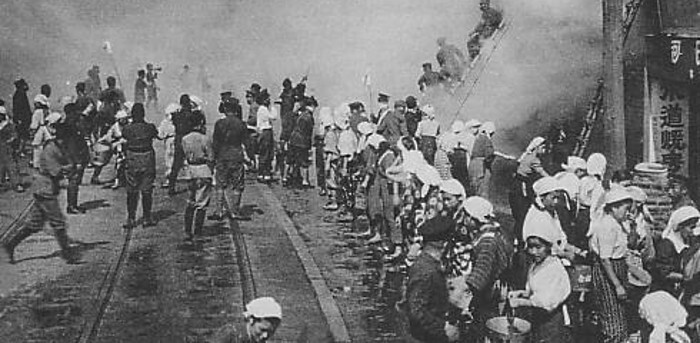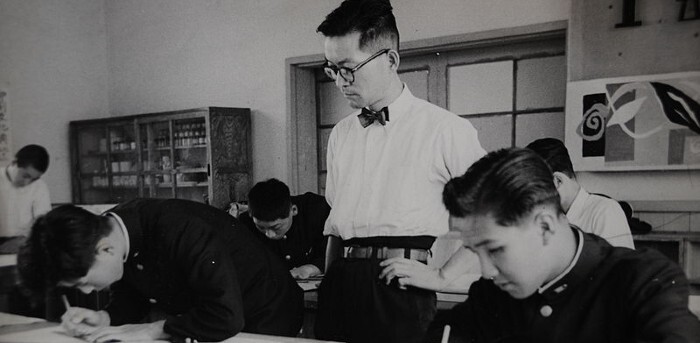Packets and Patent Wars: The Invention of Instant Ramen

It’s a near certainty that if you’re reading this, you’re alive today (or at least a little less hangry) because of instant ramen. Whether it was all you could afford during high school or college, your paycheck was still a few days away and your roommate was starting to look like a steak, or you just didn’t feel like cooking, no one is too good for some quick noods. We like to think they grow on trees planted by God himself, but the story of instant ramen is actually a tale of war, economic fluctuations, intercultural connections, and styrofoam.
Ramen in Ancient China

The origins of ramen-adjacent noodles date back to the Qing Dynasty, when legend has it a harried chef saved his overcooked noodles by frying them but probably just realized hot grease makes everything delicious. They were exported to Japan as the countries mingled over the centuries, but Japanese noodles didn’t really start popping off until…
World War II

After the war, Japan’s rice crops were destroyed, but they had a lot of wheat flour as part of aid packages from the U.S. The carb crisis led to increased consumption of noodles as Japan learned to love the starch they were with.
Momofuko Ando
The war was also pretty bad for businessman Momofuko Ando, whose factory and office buildings were obliterated by bombings. With his business physically gone, he worked his way up to president of a bank, but by 1957, his bank had failed, too. In a story now familiar to many, except usually without the happy ending, Ando decided to use the opportunity to focus on his true passion, which happened to be feeding the hungry rather than sculpting clay penis jewelry.
Black Market Noodle Carts

Back in the immediate aftermath of the war, Ando noticed lines of people huddled together to buy ramen from illicit noodle carts as food shortages tore Japan apart. He decided that noodles were the answer to everything, and he wasn’t necessarily wrong.
Perfecting Instant Ramen

With a kitchen full of secondhand noodle-making equipment, Ando embarked on a quest to create noodles that would be cheap, portable, and tasty enough to feed the world. It took him about a year to perfect his product, which he called Chikin Ramen and began selling under the brand Nissin on August 25, 1958.
The Postwar Economic Boom

By the time Ando got his product to market, to say the economic landscape had changed considerably would be an understatement. It was more like when Dorothy emerged from her sepia-toned farmhouse into a Technicolor world of witches and short people. It was unclear that instant ramen would find its niche under such conditions, but fortunately…
Luxury Noods
Despite Ando’s noble intentions, it turned out instant ramen was initially more expensive than fresh noodles -- six times more expensive, to be exact. This turned out to be exactly what newly empowered consumers wanted, as convenience became more desirable than low prices. Instant ramen was the TV dinner of Japan.
Patent Wars
Ando ran into a slight roadblock on the path to business history when he tried to patent his creation and it came to light that a man named Guowen Zhang had filed a patent for instant noodles a year before his product hit the shelves. That technically made Zhang the inventor of instant ramen, but Ando bought his patent for 23 million yen (300 million, or more than $2 million, today), so he still made out alright.
Mitsubishi

Nissin’s profits really took off in 1959 after it partnered with Mitsubishi, who were looking to get into wheat flour imports and it turns out sells more than cars. In fact, their new slogan became “From ramen to missiles,” which probably played a lot better back then.
Cup Noodles

In the late ‘60s, Ando tried marketing instant noodles to weird white Westerners, but he didn’t have much luck until he noticed customers turning their styrofoam coffee cups into ramen bowls. By 1971, he was producing Cup Noodles, because even instant ramen isn’t instant enough for America.
Leveraging McDonald’s

Cup Noodles was more expensive than the noodle packets and still required hot water, so Nissin began manufacturing vending machines with hot water taps, but the real stroke of brilliance was their placement. To get them in front of what had become their target market -- broke students -- they installed them across the street from McDonald’s.
Space Ramen
By 2005, instant ramen was so popular that Japanese astronauts begged Nissin to create a pouch full of noodles they could take into space. The company obliged, filling the pouch with thicker broth and space-friendly noodles, and “Space Ram” became the first extraterrestrial ramen.
Disaster Ramen
Ando’s dream of feeding the needy did eventually come true, and not just in the cases of service workers two days from payday. In 2011, trucks full of instant ramen were shipped in to feed survivors of the Tōhoku earthquake and tsunami.
Ramen Museums

Instant ramen has become such an important part of Japanese culture that Nissin runs not one but two museums called the Cup Noodles Museums. Visitors can learn about noodle history, make their own noodles from dough to bowl, and even become a noodle in one of the weirder virtual reality experiences on offer.
Ramen Around the World

Today, people eat about 106 billion servings of instant ramen every year, which works out to more than 13 cups o’ noodles for every man, woman, other, and baby. In 2000, it was voted Japan’s greatest invention of the 20th century, just edging out karaoke, so you know they’re serious.
Top image: Artem Labunsky/Unsplash